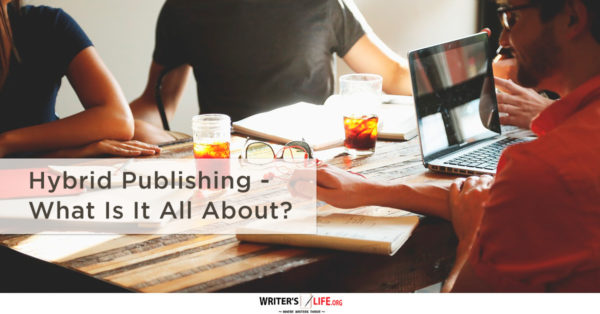- How To Tackle Jealousy In Creative Writing
- Common Submission Mistakes
- How To Stop Your Blog Becoming Boring
- The One Thing Every Successful Writer Has In Common
- How To Make Yourself Aware Of Publishing Scams
- Why Almost ALL Writers Make These Grammar Mistakes At Some Point
- 5 Tips For Authors On How To Deal With Rejection
- Top Mistakes to Avoid When Writing a Novel
- How to Avoid Common New Writer Mistakes
- 10 Mistakes New Fiction Writers Make
Hybrid Publishing – What Is It All About?

It wasn’t so long ago that as an author they only way for your work to see the light of day was to try and land yourself a publishing deal. This made it extremely challenging and daunting for little-known authors to get a look in, and undoubtedly put many off before that had even begun.
Of course, self-publishing is actually nothing new, with authors as early as 1930 deciding to go down the self-publishing route. However, advances in technology have meant that it is now much easier for them to do so, and there are far more opportunities regarding marketing to boost popularity and increase sales.
Hybrid publishing, however, is a relatively new phenomenon, one that has only recently emerged. Hybrid publishing is also known as co-publishing, partnership publishing, and independent publishing, among others, and encapsulates any publishing that is not a traditional publishing deal nor a straightforward self-publishing route.
So how does Hybrid publishing work exactly?
The truth is there are a number of different models, and while Hybrid publishing might sound exciting, particularly for new and emerging authors, it is important to understand the differences between each model and learn exactly what it means for your work before deciding that Hybrid publishing is right for you.
Let’s take a look at the main kinds.
Traditional publishers who also offer Hybrid publishing as well.
This kind of deal from a publisher would be where an author is presented with a more traditional publishing deal i.e. the publishing house would be responsible for editing and marketing the book. However, instead of offering the author an advance they would ask the author to cover the costs of this up front. This way there is less risk for the publishing house, but in return, the author would negotiate a higher commission rate if their book was to take off.
Self-publishers who offer Hybrid publishing as well
There are many self-publishing businesses out there who are willing to edit your book, design your book cover and manage the printing of your book for a fee. Authors would pay for this service, but then keep all the profit made from book sales (minus the printing costs). In fact, my own novel ‘Doctor Vanilla’s Sunflowers’ was published in such a manner!
However, there are some self-publishers looking to move into a more traditional publishing route who will offer to edit and design a professional book cover free of charge. However, in doing so they will ask for a commission on every book sold. They will usually only do this if they believe a book has commercial promise to be sure they will recoup any investment paid out to design and edit the book.
Agent-assisted publishing
Many agents have also realised that publishing, if done right, can be a lucrative business. Traditional agents take on authors whose work they think they can sell to publishing houses in exchange for a commission. However, if they feel strongly enough about a piece of work it simply makes sense to cut out the middle man altogether. Agents could therefore offer you a straightforward publishing deal for your book. Advantages of this is that you would receive more of a personalised service, and have an agent who believes in you and will work hard for you, (as they will only make money if you do!). Disadvantages are that agents are unlikely have the same distribution methods as traditional publishing houses do.
If you do decide to try Hybrid publishing, it is important to understand exactly what it means for your book and career. Doing extensive research will help. Find out what connections they have, whether they intend to take control of marketing your book and how they would do so, what kind of commission you will receive for selling you work, what rights you will have, exactly what costs you might have to pay upfront and so on.
There is nothing more important than being informed and prepared so make sure you know what you are getting into before you sign on the dotted line!

Bethany Cadman -author of 'Doctor Vanilla's Sunflowers'





























